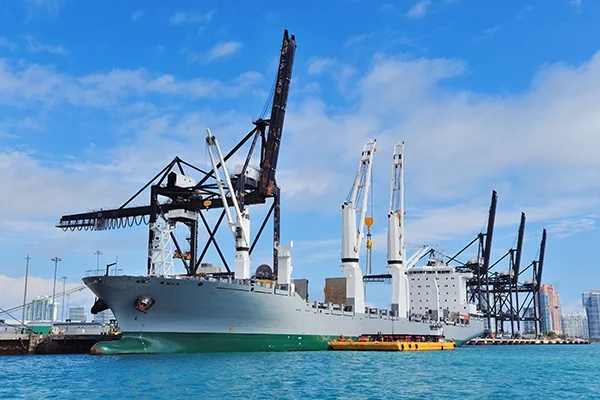The sea is the oldest means of communication in the world and, even today, the most widely used. As you know, more than 80% of international trade travels by sea. This prominence makes the shipping industry an essential link in global competitiveness. Every port, every ship, and every logistics chain represents opportunities, but also challenges that require constant innovation.
The shipping industry as a generator of employment and wealth
The shipping industry not only moves goods, it also moves local economies. You will see that business ecosystems are created around ports, including workshops, supply providers, maintenance companies, logistics services, and technical training.
This value chain multiplies job creation and contributes directly to the GDP of coastal regions, consolidating the sector as a key driver of development.
Digitalization in port management
Today, digital transformation is redefining the role of ports. You are witnessing how the implementation of intelligent management systems, real-time traffic control, and automation of logistics processes is streamlining operations.
Digitization reduces waiting times, optimizes loading and unloading, and increases security at access points. A smart port translates into efficiency for shipping companies and greater competitiveness in international trade.
Resilience of the sector in the face of global crises
The pandemic and international conflicts have shown that the shipping sector is highly vulnerable to disruptions. However, you have also seen how quickly it adapts. Diversification of routes, strengthening of supply chains, and modernization of infrastructure are responses that strengthen the sector’s resilience.
This adaptability ensures that, even in times of uncertainty, maritime transport remains the main link between continents.
Innovation in propulsion and energy efficiency
One of the most dynamic fields in the naval sector is propulsion. Electric, hybrid, and liquefied natural gas-powered engines are revolutionizing navigation. You will see that these solutions not only reduce emissions but also improve efficiency and reduce costs in the medium term.
In addition, research into renewable energies applied to ships, such as rigid sails and solar panels, opens up new possibilities for cleaner and more sustainable navigation.
Opportunities for supplier companies
Shipowners and operators depend directly on a solid network of suppliers. You know that having quality spare parts, certified tools, and immediate technical solutions makes the difference between smooth operation and costly downtime.
This is where supplier companies play a key role, not only by supplying products, but also by offering technical advice and solutions tailored to each vessel.
Conclusion
The shipping industry is not just about transport: it is about innovation, employment, sustainability, and resilience. Those of you who work in this field are key players in an industry that connects the world and must adapt to new challenges every day.
The future of global trade will continue to sail the seas, and those who invest in technology, sustainability, and training will be prepared to lead this transformation.

